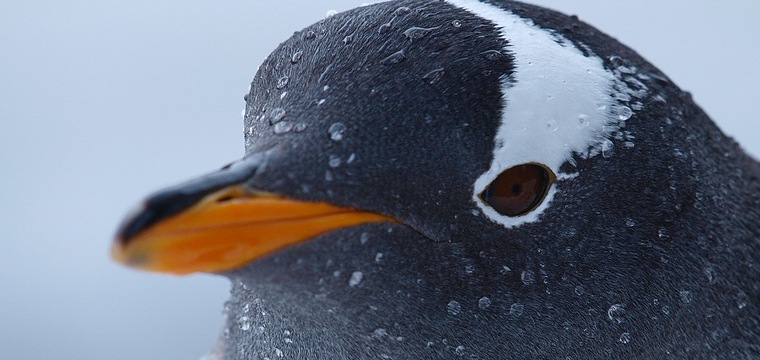A Google representative has confirmed what has been the subject of much speculation over the weekend — a Penguin 3.0 update was rolled out on Friday. This marks the first update to the Penguin algorithm in over a year.
On October 9th at Pubcon Las Vegas, Bruce Clay stated during one of his sessions on link building that sources led him to believe that a Penguin update would be coming within the next 10 days. Less than 10 days later a Penguin update was rolled out, so how’s that for a prediction!
At this time, few details are available from Google other than the fact that an update was rolled out. What percentage of search results it’s expected to affect is still unclear at this time. However, that doesn’t mean SEOs can’t do their own digging and retrieve their own data.
Here’s The Reaction So Far
This afternoon on Twitter, Moz’s Cyrus Shepard published a collection of screenshots showing data from various SEO reporting tools:
Strange Data: What Google's Penguin 3.0 looked like from 7 reporting stations around the world pic.twitter.com/eVJ93emc52
— Cyrus Shepard (@CyrusShepard) October 19, 2014
Strange data indeed, as some reporting stations are showing sharp inclines, some are showing sharp declines, and others aren’t showing much of a fluctuation at all.
Is there a possibility that this iteration of Penguin is eluding the SEO volatility tools? Russ Jones of Virante has speculated as much:
Penguin 3.0 seems to have eluded many of the search volatility tools. @AuthorityLabs looks like we should revisit building a proper one.
— rjonesx (@rjonesx) October 19, 2014
Dr. Pete Meyers of Moz has been dissecting the data and claims to have seen no signs of any large-scale shakeup in the SERPS:
Not seeing any signs yet of a large-scale Penguin shake-up yesterday. If it did happen, more likely big changes to a small # of sites.
— Dr. Pete Meyers (@dr_pete) October 19, 2014
Meyers followed up earlier this afternoon stating the data he’s seeing is unlike other Penguin updates thus far:
Google is verifying. This data looks nothing like Penguin 1.0, though – something has changed.
— Dr. Pete Meyers (@dr_pete) October 19, 2014
In-House Reports
SEJ Founder, Loren Baker, ran the data for the sites he manages and said he hasn’t seen any fluctuations in rankings that would suggest any of his sites got hit. SEJ’s Managing Editor, Kelsey Jones, also went over the data for the sites she manages and found her clients weren’t hit either:
“None of my clients were hit by this recent update. All their websites are built on WordPress and I try to work with them on blogging regularly, which I think helps keep traffic either grow or hold steady throughout the seasons.”
Kelsey also provides her advice on protecting your sites from these unpredictable Google updates:
“Amazing content is the only thing that is Google update-proof. Google will never penalize useful, unique content that the user is actually looking for. Instead of spending your time on trying to beat Google algorithms, you should be focusing on asking yourself what your ideal end user really wants. After all, that’s what Google is doing. If you aren’t sure what type of content would go over best with your audience, run a reader survey, put yourself in their shoes, or answer the question in a way that blows your competitors’ out of the water.”
Two weeks ago at Pubcon, Kelsey had the opportunity to interview Jenny Halasz of JLH marketing.
I spoke with Brent Csutoras, co-founder of Alpha Brand Media and SEJ’s social media strategist, and he explains how peoples’ link building efforts could lead to them getting inadvertently penalized by Penguin:
For years Matt Cutts and other visible search engine employees have supported the use of social media marketing to get natural links. The issue is really when people take that extra step to try to influence the link instead of letting the content natural earn the links it deserves.
For instance, Infographics are great for getting good natural links, but it becomes a problem for Google when people start slipping SEO links into the embed codes or they start paying sites to publish them and provide a link back to their client.
Penguin‘s refresh just further demonstrates their dedication and focus to eliminate any manipulation in the link building process, pushing people to focus more on quality content and content marketing practices.
The fact that we’re seeing few reports leaning to either extreme, either sites getting massively boosted or sites getting massively downranked, is a good sign for now. Of course, all this data should be taken with a grain of salt until Google publishes their own announcement.
While Google has confirmed the existence of a Penguin update, until they publish their own announcement we don’t know whether or not this update is still rolling out. If it’s still rolling out, we may have yet to see the full impact of Penguin 3.0.
I have reached out to Google and look forward to updating everyone with more details on Penguin 3.0 as soon as they are obtained.






![[SEO, PPC & Attribution] Unlocking The Power Of Offline Marketing In A Digital World](https://www.searchenginejournal.com/wp-content/uploads/2025/03/sidebar1x-534.png)